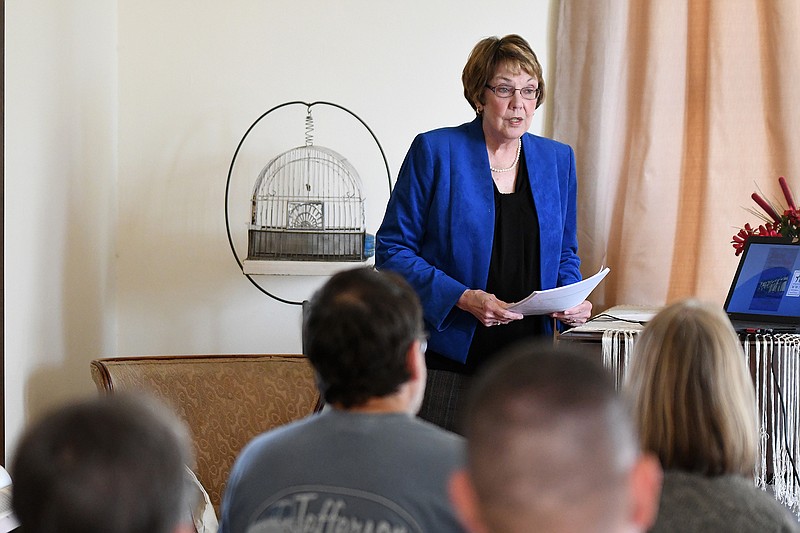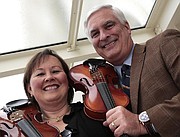Next month marks the United States' centennial anniversary entrance into World War I-a war not often studied and one not won by brave men alone, but brave women as well.
Author Elizabeth Griffin Hill journeyed from North Little Rock to Texarkana on Saturday to deliver a lecture about contributions many Arkansas women made in aiding our American servicemen to end a war that cost 35 million lives.
Hill's book "Faithful to Our Tasks: Arkansas's Women and the Great War," published earlier this month, focuses on the impact the war had on the lives of Arkansans and how many women rose to the occasion when it came to helping U.S. soldiers overseas.
"The book's title is based on the final report of the Greene County Women's Committee chairman, dated Dec. 30, 1918, when the chairman wrote, 'I hope that we will have a credible place in Arkansas history, for we have been faithful to our tasks.'"
Hill, who spoke at the historic P.J. Ahern Home, said the information detailed in her book came from Central Arkansas's Historical Archives-which have were tucked away and relatively unexplored until recent times.
"The United States entered the Great War (on) April 6, 1917, but the country wasn't prepared to provide an army of 4 million men with adequate warm clothing to survive European winters," she said.
Beyond the needs of U.S. soldiers, Hill said America's European allies, who had already been fighting the war for three years, were on the brink of starvation. For that reason, the federal government looked to its citizens-particularly women-to help provide the necessary warm clothing and food stocks through conservation.
"Today, we now have great difficulty comprehending the extent to which the government depended on its citizens to accept roles that nowadays would be filled by manufacturers or social service agencies," she said.
Before entering the war, the U.S. Congress created the Council of National Defense in August 1916. Shortly after the country went to war, the Women's Committee was created and appointed as part of the council. At the state level, a version of the national council and committee received appointment by the governor starting July 1, 1917.
The committee soon organized the Arkansas Federation of Women's Clubs.
"Just as Arkansas' women were getting organized, instructions came down from Washington to conduct a campaign in which women throughout Arkansas would be asked to sign registration cards as well as state their intentions and follow government guidelines for conducting food conservation," Hill said. "Women of all races and classes soon started signing registration cards, then they started to knit and sew clothes for the boys in the trenches of Europe. For the long haul, the Arkansas Women's Committee turned the instructing of women in food conservation over to its home economics department."
Soon, weekly newspaper columns offered advice, recipes and even menus to help women cope with performing such procedures as baking bread, muffins and biscuits with only half the wheat usually necessary. Soybean meal, sweet potatoes, oatmeal, rice, rye and corn became wheat substitutes.
By the fall of 1917, meat also became scarce in Europe, and cottage-cheese soup, sausage, roast, salad and pie were used as alternatives. By September 1918, sugar shortages in Europe became paramount, and corn sugar became king toward the war's end.
"Even prunes were eventually consider patriotic food, because their pit could be dried and ground to make filters for gas masks," Hill said.
For a copy of Hill's book, call Texarkana Museum Systems at 903-793-4831.




